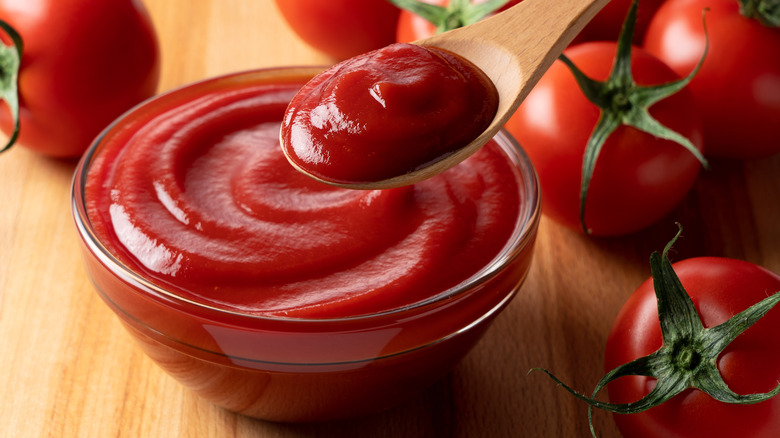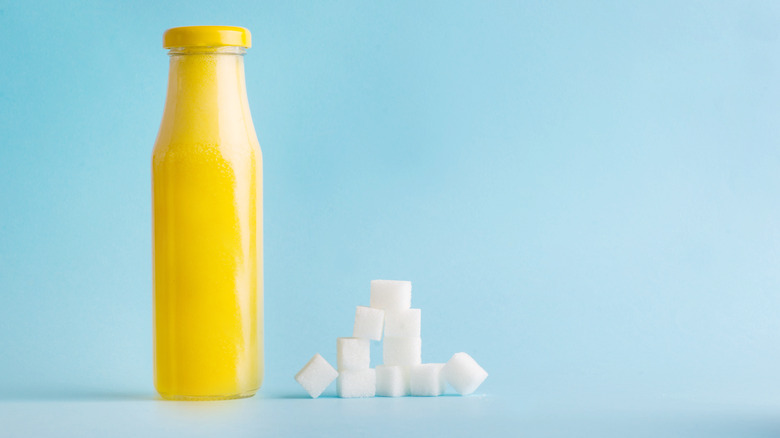The One Ingredient That Shouldn't Be In The Ketchup You're Eating
Ketchup is an amazing condiment. It goes with breakfast, lunch, and dinner. It can turn around bland potatoes and make a fussy eater tuck into a plate of eggs that they wouldn't normally touch. The sweetness of the tomatoes mixed with the tang of the vinegar is a delicious combination, as the product's popularity makes clear.
As History points out, however, the original ancient ketchup didn't even have tomatoes in it. Instead it was a fermented paste made from fish, soybeans, or meat byproducts and called either "ge-thcup" or "koe-cheup" by Chinese who spoke the Southern Min dialect and created the condiment. Over time it spread along trade routes until it reached western Europeans. Some time in the 1700s, a sample of this paste was brought back to Britain, where it encountered tomatoes transplanted from South America some 200 years earlier.
With all this change over time, it's a wonder that what we now call ketchup is fairly uniform. No matter the brand or the bottle, you're likely getting the same product every time. A quick glance at the ingredients list tells another story, however. Some ketchup brands add a few extra ingredients to today's ketchup recipe. And there's one you really don't want to see on the bottle you have at home.
The not-so-sweet truth
The ingredient lists on pre-packaged ketchup bottles are deceptively short. Tomatoes, water, white distilled vinegar, and usually some variation on the phrase "herbs and spices." As AllRecipes reveals, however, the number of ingredients can climb into the double digits (like this one from The Pioneer Woman). Some recipes include things like ginger and celery salt, while others opt for garlic, cumin, salt, pepper, and onion. Still others combine all of these and even call for things like Worcestershire sauce.
The amount of salt — or salt-inclusive additives — may concern some people. And for good reason. Food Network tackled the question of whether or not ketchup is healthy, and what they found is that it is, for the most part. When it comes to salt and sugar, however, it's easy to overdo it. The network states that eight tablespoons of ketchup can max out a person's daily recommended sodium intake.
Even more concerning, however, is the sugar. Since most of the sugar in ketchup is added in, it doesn't bring along the fiber that comes with naturally occurring sugars in tomatoes. Harvard Health Publishing even lists ketchup as a sneaky source of added sugar, something that is in far more foods than people think. And with sugar hiding even in savory foods or staples like bread, it's far too easy to increase sugar-related risks like diabetes, obesity, and heart disease.


